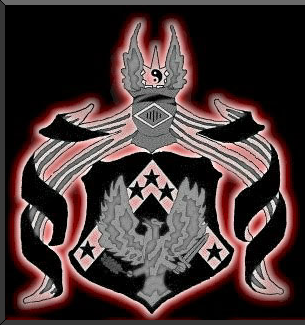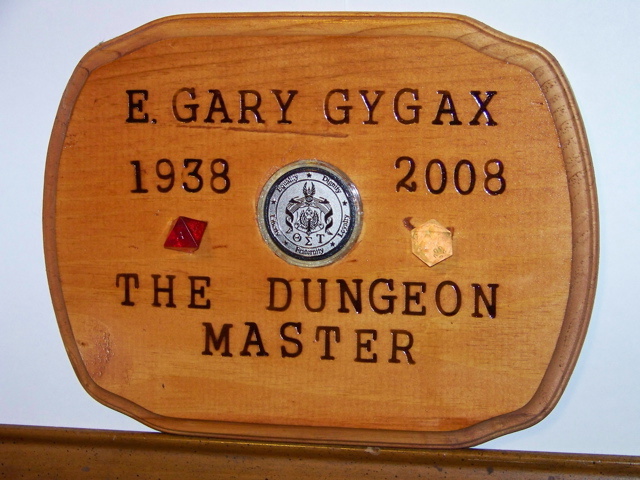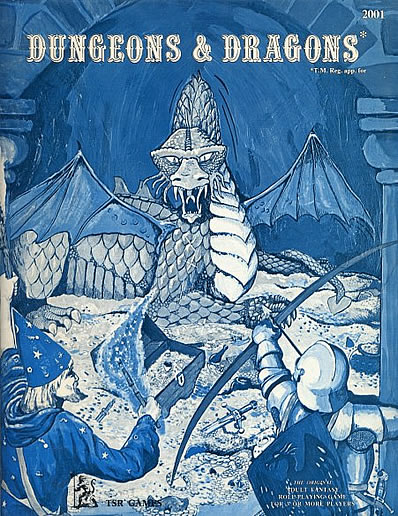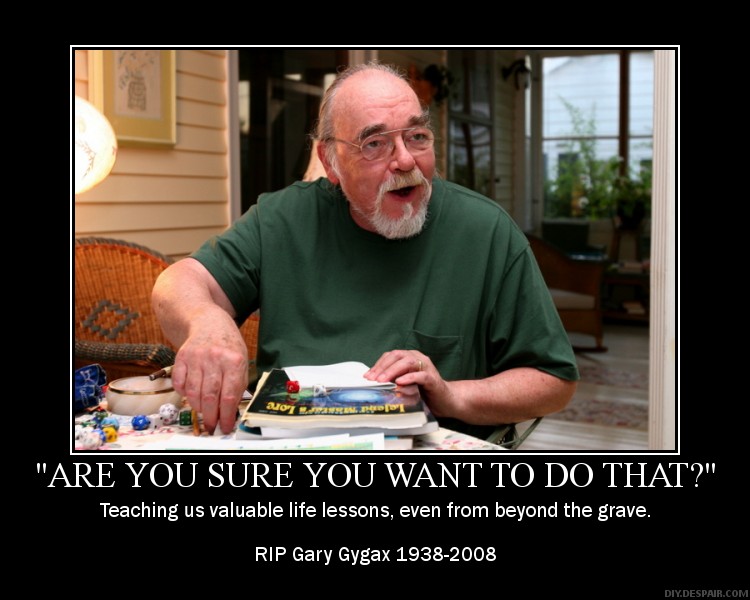Gary Gygax
Affable avatar of the Dungeons & Dragons fantasy role-playing game which became a worldwide cultural phenomenon
As the creator of Dungeons & Dragons, Gary Gygax was an idol to millions of geeks around the world. But he was also the visionary inventor of a new type of interactive hobby, the role-playing game, one that sparked a rekindling of interest in the fantasy genre and was a key inspiration for the billion-dollar computer game industry. As such, Gygax's influence spread beyond the legions of pallid school misfits who knew his name, and came to permeate popular culture as a whole.
Ernest Gary Gygax was born in Chicago in 1938, and moved to Lake Geneva, Wisconsin, aged 8, where he lived until his death. His father, a Swiss immigrant violinist in the Chicago Symphony Orchestra, introduced him to fantasy novels at a young age.
Gygax dropped out of high school, although he took anthropology classes at the University of Chicago, and worked as an insurance underwriter in the 1960s. He became an avid fan of traditional board-based war games, particularly medieval battles. The first step towards Dungeons & Dragons came when Gygax introduced fantasy elements from the pulp authors he devoured.
"The guys were getting a little tired of military miniatures, so one day I put a troll under the bridge, had a giant dragon and all that kind of good stuff," he said in 1987. "Well, they loved it. They absolutely went crazy for it."
This evolved into Chainmail, a fantasy war game still played with minature pieces. This was stripped down by Gygax's fellow gamer, Dave Arneson, into a game where each player was represented by just one piece. The pair then codified this into an early version of Dungeons & Dragons.
The game did away with the board, relying only on graph paper, pencils, imagination and many-sided dice. Each player created an avatar from a class - warrior, wizard - and a race - dwarf, goblin, elf - and set off on a fantasy expedition guided by the Dungeon Master and his thick book of rules.
The goals included finding a hoard of treasure, or defeating an evil magus, and making sure to kill everything along the way. Games could last for several days, and there was no obvious way to win. It seemed an unlikely hit. "People said, 'What kind of game is this?' You don't play against anybody. Nobody wins. It doesn't end. This is craziness', " Gygax said in 1983.
Undeterred, in 1973 Gygax and Donald Kaye founded a company, Tactical Studies Rules, to develop the game. Dungeons & Dragons hit the shelves in early 1974. The game sold only 1,000 copies in its first year.
Gradually though, as teenagers across American met for furtive games in their parents' basements, D&D became an underground hit. A tournament version, Advanced Dungeons & Dragons, was introduced in 1978, and the game became a phenomenon on college campuses. Gygax began receiving late-night phone calls from players asking for clarification of the rules. Sales of the game reached $8.5 million in 1980 and $29 million by 1985.
Many adults, however, were suspicious of the new craze. Religious groups accused the game of spawning satanic cults. Newspapers linked it to a variety of teen murders and suicides. Although he later joked "that really pushed the sales up", at the time Gygax received death threats and for a while had to employ bodyguards. He always insisted that the claims were absurd, and that D&D was good for imaginative development.
Although the furore passed, and a D&D spin-off cartoon became popular, the game itself seemed to have peaked. Gygax lost control of TSR in the mid-80s after a legal tussle. The company was sold in 1997 to Wizards of the Coast, which later became part of Hasbro. There followed a D&D film, with Jeremy Irons, and a computer version of game, both to poor reviews.
Gygax moved on to other projects. He developed two more games, Dangerous Journeys and Lejendary Adventures, and wrote a series of fantasy novels. He also remained involved with GenCon, the gaming convention he had started in 1968 and which last year attracted 26,000 devotees. In 2000 he appeared, alongside Al Gore, in a episode of Futurama. He worked consistently until health problems began two years ago, commenting in 2005: "What money I made I gave to charities and needy attorneys, the IRS and my ex-wife."
Although D&D struggled as computer games chipped away at role-playing's fanbase, it proved a huge influence on the emerging gaming industry, and generations of hugely popular games like Everquest, Halo and World of Warcraft owe a debt to Gygax's original. Even though he never made one himself, Gygax was named 17th most influential person in computer game history by Gamespy.com. In their book of the rise of the computer game, Dungeons & Dreamers, John Borland and Brad King credit Gygax as an inspiration: "Scratch almost any game developer who worked from the late 1970s until today and you're likely to find a vein of role-playing experience."
Gygax himself though, was no fan of online gaming, which he said destroyed the social bonding of D&D. "The game offers camaraderie, imagination, socialisation," he said in 2005. "Computer games can be so isolating. They're not anything like sitting in a group and laughing, telling stories. You can't share a bag of Cheetos online."
As the generation that grew up with D&D came of age, the fantasy aesthetic that Gygax popularised spread through film, television and graphics, with many of the writers of his youth enjoying a renaissance. His world of wizards, elfs and unending quest became part of popular culture, and contributed to the receptive climate for the Harry Potter novels and the Lord of the Rings films.
"The story of the hero being called forth, usually unwillingly, and adventuring and undergoing a change has been with us probably since stories were told round campfires," he said in 2005. But although many detected the influence of Tolkien in D&D, Gygax told Gamespy.com that he was never a fan: "I yawned through the books. I found them very droll and very dull. I still don't give hoot about Hobbits."
He is survived by his wife, Gail, and six children.
Gary Gygax, co-creator of Dungeons & Dragons, was born on July 27, 1938. He died after a long illness on March 4, 2008, aged 69.







